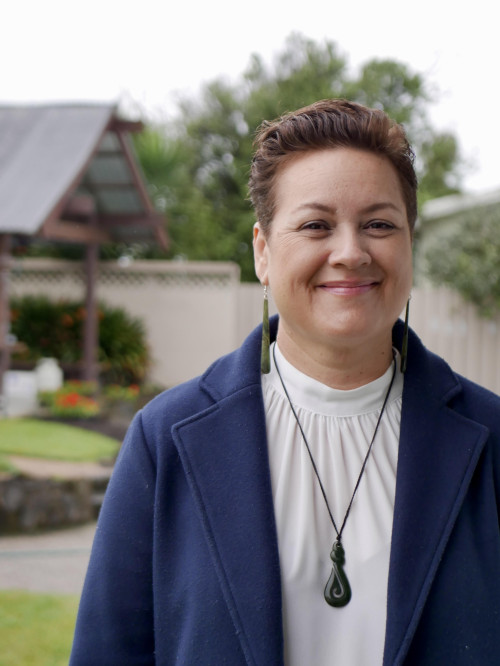
Registered Nurse Nayda Heays will be presenting on a topic close to her heart at a nursing conference in Canada this July: Māori experiences of kidney transplantation.
The Hawke’s Bay Hospital Intensive Care Unit (ICU) nurse has several whānau members who have had or have kidney disease or dialysis.
This is in part what inspired her to co-author the study, published in the American Journal of Kidney Diseases (AJKD), which she will be presenting at the International Council of Nurses Congress, held in Montreal from 1 to 5 July.
“My why is so strong,” Nayda says. She is also part of the ICU’s Patient-At-Risk outreach team and holds the Māori seat for the NZ Critical Care College – NZNO.
“It’s about the right for Māori to self-determine their health, and be given equitable opportunities,” she says.
Nayda says the research was first inspired by a small study she initiated in 2017. At the time, she was an Organ Donation NZ Link Nurse, and also working in ICU, and had witnessed colleagues omit to ask Māori patients about organ donation.
“The study posed the question: ‘Do staff take bias into our jobs?’ and they did,” Nayda says.
“In a nutshell, I identified staff perspectives about why we don’t ask Māori about donation.”
Nayda is one of five Māori nurses attending the ICN conference, each presenting different research.
“Our aim is to build and establish relationships - we are going hard as indigenous nurses,” she says.
“From a Te Ao Māori perspective, we are going to whanaungatanga with the rest of the world.”
Nayda was one of six who co-authored the AJKD study, which used a kaupapa Māori methodology (“By Māori, for Māori, to improve outcomes for Māori”) to canvas perspectives of indigenous Māori on kidney transplantation.
Previously a nurse in the hospital’s Renal department, Nayda was the sole qualitative interviewer for the study. She interviewed 40 people including organ donor whānau, recipients and people waiting. Each interview took 60 to 90 minutes.
Among the study’s findings were that participants wanted health services to incorporate the values of tikanga, karakia and whanaungatanga.
The research also found Māori patients and whānau advocated for an indigenous, strength-based, culturally responsive approach to education and treatment options for kidney disease.
“Self-determination means Māori should decide for their own people, for their communities,” Nayda says.
“If we are empowered to do that in a system that actualises Te Tiriti o Waitangi, our own health outcomes will improve.”
ENDS
Photo Caption:
Hawke’s Bay Hospital Intensive Care Unit Registered Nurse Nayda Heays
Editor’s note:
Co-authored by Rachel Walker, Sally Abel, Suetonia Palmer, Curtis Walker, Nayda Heays and David Tipene-Leach, the AJKD study is titled: Values, Perspectives and Experiences of Indigenous Māori Regarding Kidney Transplantation: A Qualitative Interview Study in Aotearoa/New Zealand and can be found online at https://www.ajkd.org/article/S0272-6386(22)00469-3/pdf






Post your comment
Comments
No one has commented on this page yet.